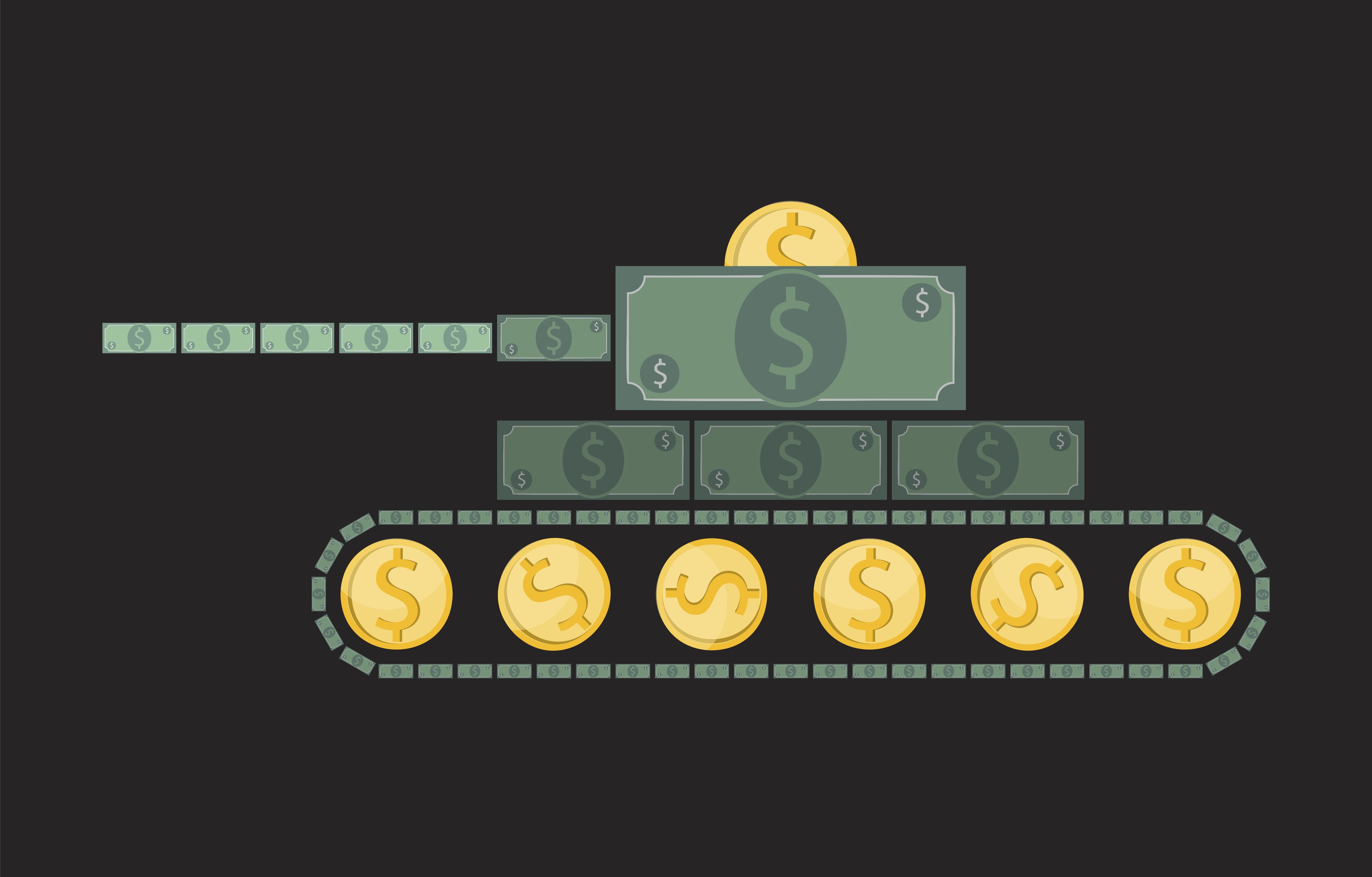Will the United States renew its funding for Ukraine’s defensive war against Russia? Congress is having difficulty deciding the answer to this question, with Republicans still committed to withholding consent until President Biden agrees to bolster security at the U.S.-Mexico border. With political support for Ukraine looking shaky, the White House is nervous — and rightly so.
In a drive to convince lawmakers of the necessity to arm Ukraine, President Biden last year took to emphasizing the economic benefits for communities across the United States. The intuition behind this strategy was that many voters might wrongly assume that “aid to Ukraine” means wiring huge sums of money to bank accounts in Kyiv.
In fact, much of America’s military aid comes in the form of in-kind contributions, such as arms and ammunition taken from existing U.S. stockpiles. If Congress votes to finance more support for Ukraine, the lion’s share of this funding will go to domestic firms tasked with replenishing the Pentagon’s own armories.
Viewed in this light, aid to Ukraine starts to look a lot more attractive to people who adopt a narrow definition of the national interest. Who could oppose billions of dollars being allocated to U.S.-based businesses and their workers?
But while there are many good reasons to put U.S. resources behind Ukraine’s war effort, boosting the economic fortunes of ordinary Americans is among the very weakest.
Most obviously, it is badly misleading to characterize the funds being spent on arming Ukraine — at least $68 billion so far — as a windfall. To listen to President Biden, one would be forgiven for believing that military spending is free money, available to U.S. manufacturers if only Congress would get out of the way.
In reality, of course, these are Americans’ own tax dollars — that is, money being taken out of the pockets of ordinary people, not money being given to them. It is always true that Congress can appropriate funds for the purpose of wealth redistribution. Aid to Ukraine is not special in this regard.
One way that military spending is distinctive, however, is in terms of how unequally defense dollars are distributed. This is because firms belonging to the defense sector are not spread evenly across the United States. They are concentrated in certain locales — Tarrant County in Texas, Fairfax County in Virginia, and El Paso County in Colorado, for example.
Military spending only ever flows to these parts of the country that host arms manufacturers, aerospace companies, and the like — a non-contiguous region of the United States that some scholars have called the “gunbelt” because of its economic reliance upon militarism.
By contrast, Pentagon liberality only rarely has a direct impact upon local economies that are centered on other industries. In short, whenever military spending is increased, it just means that communities already accustomed to receiving large quantities of defense dollars are given even more than usual.
This is why, as the Department of Defense’s own maps show, over a dozen states have received no major influx of cash as a result of aid to Ukraine.
It is true, then, that aid to Ukraine might bolster the economic fortunes of select parts of the country. But why should taxpayers across the whole of America cheer the flow of federal dollars toward just some towns and cities? This question is asked not nearly enough.
To be clear, states belonging to America’s gunbelt already receive tens of billions of dollars in federal spending each year. There is nothing untoward about this; it is a mundane economic consequence of the United States having a large defense budget. That money has to be spent somewhere.
But there is nothing progressive or communitarian about giving these communities billions more. Indeed, it is borderline repugnant to expect popular gratitude in return for grossly inequitable wealth redistribution.
One possible rejoinder to this argument is that military outlays are not supposed to be equitable, so nobody should be outraged if money spent aiding Ukraine benefits some Americans more than others. After all, the Pentagon distributes cash as a means of funding a strong national defense, not to boost the fortunes of particular geographic locales or demographic groups.
But this is exactly the point: military spending is not a social program and should not be justified as such. If there are Americans who benefit economically from U.S. foreign and defense policies such as assisting Ukraine — and, of course, there are — then this should be recognized as an incidental outcome, not a goal that is being maximized because of adroit and intentional public policy.
For anyone interested in improving the welfare of ordinary Americans, military spending should not be the mechanism of choice for doing so. Defense outlays are a form of wealth redistribution, but only in a regressive sense — hardly something to be celebrated.
President Biden has made no secret of his belief that the war in Ukraine affects core U.S. national interests. He should continue making this case in compelling terms. Arguments that draw attention to the local-level economic implications of aid to Ukraine are not his strongest suit.
- Aid for Israel and Ukraine is not an American jobs program ›
- NATO chief in DC trying to get blood from a stone | Responsible Statecraft ›
- No magic US weapon left for offensive Ukraine victory | Responsible Statecraft ›
- What will more aid to Ukraine accomplish? | Responsible Statecraft ›
- Why War Inc. absolutely loves red tape and bureaucracy | Responsible Statecraft ›
















